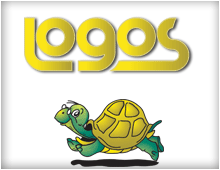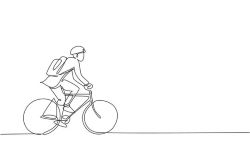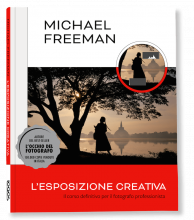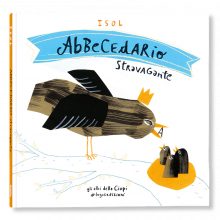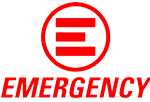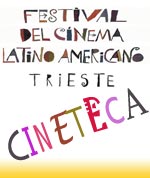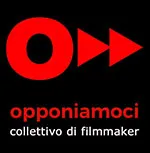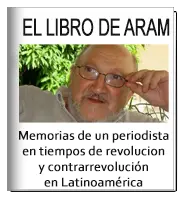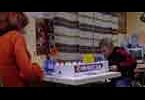Tag: Mostra Communication
Totale: 88
Cooperation that Counts: Helping the World by Preserving Biodiversity
We're in the East of the Democratic Republic of Congo. Contrary to appearances, these men are not soldiers... They are forest rangers from the ICCN, the Congolese Institute of Nature Conservation. Their job? To fight against poaching and protect the biodiversity of the Virunga National Park.
Interviews:
Samy Mankoto, President, Central Africa Protected Areas NetworkNorbert Mushenzi, Conservationist, Virunga National ParkCarlo De Filippi, Head of European Commission Delegation - Democratic Republic of CongoNorbert Mushenzi, Conservationist, Virunga National ... continua
Interviews:
Samy Mankoto, President, Central Africa Protected Areas NetworkNorbert Mushenzi, Conservationist, Virunga National ParkCarlo De Filippi, Head of European Commission Delegation - Democratic Republic of CongoNorbert Mushenzi, Conservationist, Virunga National ... continua
- Visualizzazioni: 2529
- Lingua:
 | Sottotitoli:
| Sottotitoli: 
- Fonte: Mostra Communication | Durata: 12,37 min | Pubblicato il: 14-09-2006
-

- Categoria: Informaciones
- Tag: Mostra Communication
- Scarica: MP3 | MP4 | alta risoluzione
- Scarica i sottotitoli
- Condividi Commenta
Cooperation that Counts: Innovative Approaches to AIDS Prevention
Ouagadougou. It's 7 am. 30° Celsius. For several hours now, motor bikes have been buzzing along the main roads into the capital of Burkina Faso. This is a place you need to be mobile and show that you're able to get around. Something the European Union well understood when it chose to finance the NGO Medecins du Monde or Doctors of the World. The funding is part of a vast programme of AIDS prevention which includes European AIDS-INNOVATION projects. Here in Burkina Faso, Medecins du Monde has made mobility the central theme of its AIDS prevention ... continua
- Visualizzazioni: 2262
- Lingua:
 | Sottotitoli:
| Sottotitoli: 
- Fonte: Mostra Communication | Durata: 14,41 min | Pubblicato il: 14-09-2006
-

- Categoria: Informaciones
- Tag: Mostra Communication
- Scarica: MP3 | MP4 | alta risoluzione
- Scarica i sottotitoli
- Condividi Commenta
Coping in a Crisis - Europe's Civil Protection Mechanism
We live in a unpredictable world where disaster can strike at any time. Catastrophes can be natural, like the South Asia Tsunami that left over 300,000 people dead in 2004.
Or they can be made, like the 2006 war between Israel and Hezbollah fighters, which caused huge suffering and damage particularly in Lebanon.
But wathever the cause, getting help to victims is always a race against time. The aid and assistance that arrives in a disaster zone in te first hours and days is vital. It can make the difference between a catastrophe being brought under control or ... continua
Or they can be made, like the 2006 war between Israel and Hezbollah fighters, which caused huge suffering and damage particularly in Lebanon.
But wathever the cause, getting help to victims is always a race against time. The aid and assistance that arrives in a disaster zone in te first hours and days is vital. It can make the difference between a catastrophe being brought under control or ... continua
- Visualizzazioni: 2141
- Lingua:
 | Sottotitoli:
| Sottotitoli: 
- Fonte: Mostra Communication | Durata: 6,24 min | Pubblicato il: 04-2007
-

- Categoria: Informaciones
- Tag: Mostra Communication
- Scarica: MP3 | MP4 | alta risoluzione
- Condividi Commenta
Costing the Earth: the Treath to Europe's Soils
Arnold Hertlog and his wife Huguette have always loved tending their garden in the small Flemish town of Saint Armands, far from Brussels. But the garden hasn't looked like this.In 1998 the couple were told that their home - along with more than hundred neighbouring houses - was sitting on an environmental time bomb. It was discovered that the earth was contaminated with poisonous compounds including arsenic and mercury.
Interviews:Huguette Hertog, Saint Amands resident Arnold Hertlog, Saint Amands resident Victor Dries, OVAM-Flemish Public Waste AgencyStavros Dimas, ... continua
Interviews:Huguette Hertog, Saint Amands resident Arnold Hertlog, Saint Amands resident Victor Dries, OVAM-Flemish Public Waste AgencyStavros Dimas, ... continua
- Visualizzazioni: 2298
- Lingua:
 | Sottotitoli:
| Sottotitoli: 
- Fonte: Mostra Communication | Durata: 9,29 min | Pubblicato il: 11-2005
-

- Categoria: Informaciones
- Tag: Mostra Communication
- Scarica: MP3 | MP4 | alta risoluzione
- Condividi Commenta
Countering the Resistance of Bacteria to Antibiotics
Eighty kilometres from Stockolm, near the town of Uppsala, lies Anders Kjellerby's farm. As well as cattle, there's a heard of 180 pigs and every year the farm produces4.200 piglets. There are very tough restrictions including a maximum weaning age of 4 weeks and a complete ban on the use of antibiotics as growth promoters.As Anders explains, Sweden was in fact the first European country to adopt such a ban, back in 1986.
Interviews:
Anders Kjellerby,Farmer in UppsalaStaffan Normark, Institute of Infectious Disease Control, Sweden Birgitta Henriques, ... continua
Interviews:
Anders Kjellerby,Farmer in UppsalaStaffan Normark, Institute of Infectious Disease Control, Sweden Birgitta Henriques, ... continua
- Visualizzazioni: 2511
- Lingua:

- Fonte: Mostra Communication | Durata: 8,39 min | Pubblicato il: 07-06-2006
-

- Categoria: Informaciones
- Tag: Mostra Communication
- Scarica: MP3 | MP4 | alta risoluzione
- Condividi Commenta
Electricity and Gas: You choose!
Already effective in nine Member States, the liberalisation of gas and electricity markets comes into effect throughout the European Union from July 1, 2007. Consumers of electricity and gas across the whole EU now have the right to freely choose their supplier. Competitive prices, a quality service and consumers’ rights protection should be the benefits of this liberalisation, started more than 10 years ago by the European Commission. The liberalisation of the gas and electricity markets should also reinforce the interconnections between the Member States and ... continua
- Visualizzazioni: 2867
- Lingua:
 | Sottotitoli:
| Sottotitoli: 
- Fonte: MOSTRA | Durata: 10,34 min | Pubblicato il: 11-2007
-

- Categoria: Informaciones
- Tag: Mostra Communication
- Scarica: MP3 | MP4 | alta risoluzione
- Condividi Commenta
En finir avec la pauvreté des enfants en Europe
Les enfants qui grandissent dans la pauvreté etl’exclusion sociale ont moins de chances que leurs pairs mieux lotis deréussir à l’école, d’être en bonne santé et d’éviter d’être confrontés à lajustice pénale. Ils sont également susceptibles de rencontrer davantage dedifficultés pour faire leur entrée sur le marché du travail et trouver leurplace au sein de la société.
La reprise économique récente et la baisse du taux dechômage ne se sont pas traduites par une réduction de la pauvreté desenfants. La théorie du ruissellement ne marche ... continua
La reprise économique récente et la baisse du taux dechômage ne se sont pas traduites par une réduction de la pauvreté desenfants. La théorie du ruissellement ne marche ... continua
- Visualizzazioni: 3394
- Lingua:
 | Sottotitoli:
| Sottotitoli: 
- Fonte: Mostra Communication | Durata: 11.11 min | Pubblicato il: 14-04-2008
-

- Categoria: Documentari
- Tag: Mostra Communication
- Scarica: MP3 | MP4 | alta risoluzione
- Condividi Commenta
Enhancing participation to Clean Development Mechanism
The fight against climate change has been organised in such a way that it offers developing countries opportunities for economic and social development.
With their signature of the Kyoto Protocol, most industrialised countries have agreed to limit their CO2 emissions through a quota system.
If need be, however, they may make use of a mechanism that allows them to buy additional emission rights on international markets from developing or emerging economies, which have no limits on their emission levels.
If developing or emerging countries ... continua
With their signature of the Kyoto Protocol, most industrialised countries have agreed to limit their CO2 emissions through a quota system.
If need be, however, they may make use of a mechanism that allows them to buy additional emission rights on international markets from developing or emerging economies, which have no limits on their emission levels.
If developing or emerging countries ... continua
- Visualizzazioni: 2654
- Lingua:
 | Sottotitoli:
| Sottotitoli: 
- Fonte: Mostra | Durata: 08,06 min | Pubblicato il: 03-12-2007
-

- Categoria: Informaciones
- Tag: Mostra Communication
- Scarica: MP3 | MP4 | alta risoluzione
- Condividi Commenta
EPER: Industrial Pollution On-line
Since February 23rd 2004, this Internet user has added a new bookmark to the favorites listed in his browser. The address is for the EPER site. EPER is the European PollutantEmission Register, which has been placed online by the European Commission. The EPER register is meant to be transparent and accessible to everybody.
A simple click takes the Internet user to the information highways that lead to the hearth of the register. EPER is a systematic listing of the pollutant emissions of nearly 10,000 industrial sites active in the 15 Union Member States and ... continua
A simple click takes the Internet user to the information highways that lead to the hearth of the register. EPER is a systematic listing of the pollutant emissions of nearly 10,000 industrial sites active in the 15 Union Member States and ... continua
- Visualizzazioni: 2135
- Lingua:

- Fonte: Mostra Communication | Durata: 9,27 min | Pubblicato il: 01-02-2004
-

- Categoria: Informaciones
- Tag: Mostra Communication
- Scarica: MP3 | MP4 | alta risoluzione
- Condividi Commenta
EU to step prevention of alcohol related-harm
The TV report "EU steps up prevention of alcohol-related harm" shows how alcohol consumption is a growing health, social and economic problem in Europe. The problem is acute among teenagers, as shown by the following drinking patterns, shown in the video : "Binge-drinking" in the United Kingdom means drinking high amounts of alcohol in a single session. The terminology might be new but the phenomenon has long been practised in the UK, and increasingly for 15 years. "El botellòn" (the big bottle), in Spain, consists of heavy consumption of alcohol (a mixture of soda, ... continua
- Visualizzazioni: 2373
- Lingua:
 | Sottotitoli:
| Sottotitoli: 
- Fonte: Mostra Communication | Durata: 6,26 min | Pubblicato il: 21-11-2006
-

- Categoria: Informaciones
- Tag: Mostra Communication
- Scarica: MP3 | MP4 | alta risoluzione
- Condividi Commenta


